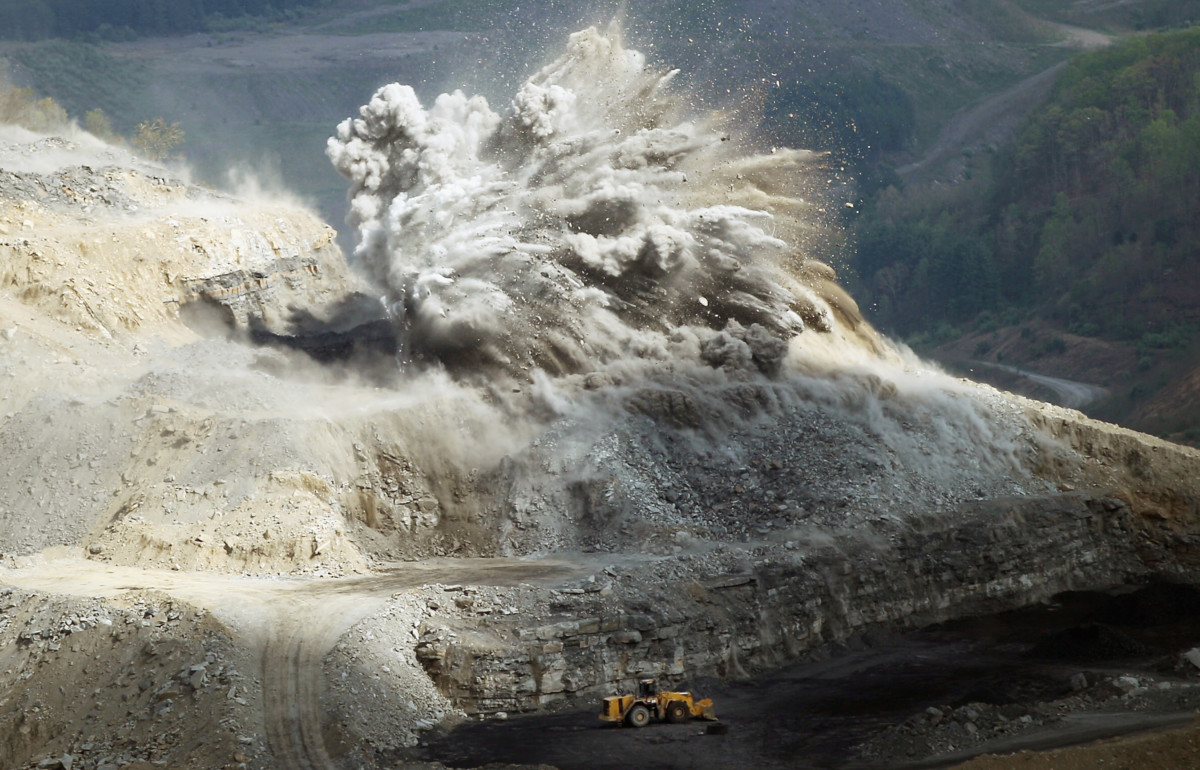A shocking new study has revealed the truth about mountaintop removal mining in Appalachia, and the situation is even worse than we thought. Every year this highly invasive coal mining method destroys approximately 21,000 acres of land. To put that into perspective, that’s about two-thirds the area of San Francisco.
In the last 40 years, the coal mining industry has cleared some 2,300 square miles of land. And that land will take decades — possibly centuries — to recover from the environmental insult provided by coal companies greedy for profits. The surrounding human communities, meanwhile, will also pay a high price.
The researchers, who include both academics and community organizers, arrived at their figures by studying satellite imagery dating from 1985 to 2015, to get a big-picture look at how mining has affected the landscape. In the process, they developed an algorithm to automate the process, which will make it easier to monitor the ongoing effects of mining in the region over the coming years.
This mining technique involves pretty much exactly what it sounds like: Mountains are cleared of trees and shrubs and then their tops are scraped open to reveal commercially valuable seams of coal inside. This process is much cheaper than alternatives, and it allows for better access to some deposits of coal, which makes it highly appealing to coal companies.
But it’s horrific for the environment. Clearing mountains destroys habitat and threatens wildlife, and the process of extraction is quite unpleasant as well. In regions where such operations are commonplace, contamination spreads to the surrounding soil, water and air, making communities very sick.
This known issue is such a concern that the federal government actually ordered environmental health research to look into the conditions in coal country. In a move that may not surprise you, the Trump administration pulled the plug on that research last summer.
We know that coal mining is harmful — and that a law of diminishing returns is kicking in, making coal dirtier and dirtier to produce and use over the years as energy companies struggle to stay relevant. Pushes for renewable energy were making coal less tenable, and changing sentiments contributed to fascinating proposals for repurposing coal sites to transition away from this outdated and destructive energy source.
But the Trump administration is a big friend to coal, and so is the man who could end up heading the Environmental Protection Agency now that Scott Pruitt is out.
This study helps to highlight both the cost and stakes of mountaintop removal. Putting hard numbers on environmental destruction is sobering for advocates, but it can also be insightful for policymakers who now have a better understanding of the risks. These numbers can drive conversations about how to address the coal problem, and the ongoing work will allow researchers to see the effects of policy changes firsthand — if the rate of mountaintop removal keeps pace, or even increases, it would be an ominous sign for Appalachia’s future.
Political campaigns often reference coal “country,” especially Republican candidates who speak about coal mining as a way of life and suggest that the nation should protect access to employment in this industry. But relatively few people work in coal mining these days, and the risks of the job aren’t worth the pay — or any amount of money, for those concerned about the long-term environmental impact.
Instead of leaning on coal extraction, we could be promoting other revenue opportunities for Appalachian communities that are environmentally friendly, offer great employment opportunities and help concentrate wealth in the hands of the people, rather than major corporations. Many Appalachian communities are already thinking about what life after coal might look like — for example, communities could restore and steward forests as part of a carbon offset program.
Press freedom is under attack
As Trump cracks down on political speech, independent media is increasingly necessary.
Truthout produces reporting you won’t see in the mainstream: journalism from the frontlines of global conflict, interviews with grassroots movement leaders, high-quality legal analysis and more.
Our work is possible thanks to reader support. Help Truthout catalyze change and social justice — make a tax-deductible monthly or one-time donation today.
